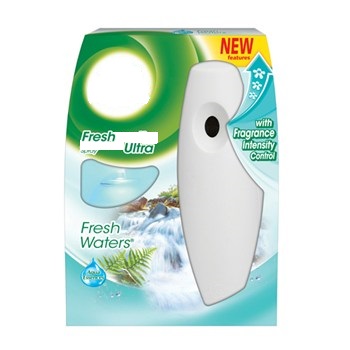Potential Health Concerns for Fragrance-Based Air Fresheners

Sometimes you may enter a business, a store or even a friend’s home and immediately notice a strong scent or smell. The air freshener may be pleasant or not based on your own personal preferences. For some people, the smell may trigger an asthma attack or migraines. For others, the smell may seem benign.
Recently, the use of chemical air fresheners has been increasing as plug-in, heated and scented products become more widely available. Since the products are not eaten or applied to the skin, there is little regulatory oversight into their composition and use.
I must also admit in writing this article that I have a strong bias against these products. To be completely honest, I loathe them. In numerous apartments, I have waged war with neighbors’ air fresheners trying to keep the smell from their apartment from permeating my own living space. In most cases, the smell is unstoppable. From there, I have fallen back on somewhat awkward conversations trying to explain how I would appreciate their willingness to discontinue the use of the products.
Asthma
The strongest research against these products is on asthmatics. Almost half (41%) of asthmatics report problems with air fresheners. The effects even qualify as disabling for 62.8% of negative responders under definitions in the Americans with Disabilities Act. Yet, the vast majority of asthmatics are exposed to these products at least once a week. Even more concerning, 35.4% of asthmatics have missed work or lost a job in the previous year due to fragranced product exposure (Steinemann 2018). Since around 8% of the population struggles with asthma, the problem is not insignificant (CDC 2020).
Even among folks without asthma, sensitivity to fragrances is still surprisingly common. In one study, 19% of the general public reported adverse health effects from air fresheners (Caress 2009).
Chemical Levels in Homes
Air fresheners contain volatile chemicals that are released as they are used. Total volatile chemicals in the air is one potential measure of air quality, with lower being more desirable. In one study from South Korea, individuals that used artificial air fresheners more than doubled volatile chemicals in the air with levels at 1183 parts per million (PPM) compared to 589 PPM without (Lee 2014)
A study in the United States also showed high levels of volatile chemicals associated with air freshener use. In addition, exposed individuals appeared to suffer negative health consequences. Infants exposed had significantly more problems with earache and diarrhea. Mothers in the exposed homes had higher rates of headache and depression (Farrow 2003).
Other Concerning Research
Air fresheners often don’t list the chemicals contained in the product. One study that evaluated the ingredients of a plug-in air freshener found 20 volatile chemical components. Seven of these chemicals are regulated as toxic or hazardous by the U.S. government (Steinemann 2009).
Studies conducted on rats exposed to chemical air fresheners at levels similar to home use also had concerning results. Exposed rats showed degeneration of nasal mucosa and potential precancerous changes after 3 months of exposure (Akdag 2014). While the authors very clearly state that humans could react differently, it still should raise obvious concerns.
While rare, there are also cases of ventricular fibrillation from air freshener exposure that could be fatal (Snethilkumaran 2012, LoVecchio 2001). Both case reports listed here were for young individuals, a 25-year-old woman and a 16-year-old male. In the two published cases, the individuals were treated effectively at their local hospital emergency department. In both cases, the air fresheners contained butane or isobutane, substances that can cause serious heart problems when inhaled by sensitized individuals.
Conclusion
Chemical air fresheners appear to have significant negative health effects for a portion of the population. In addition, there appear to be reasonable concerns for the chemicals contained in these products. If you have problematic smells in your home, it’s best to find the source and eliminate the smell. Covering it up with additional, potentially hazardous chemicals is probably not a healthy option.



